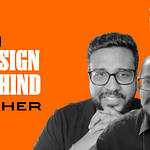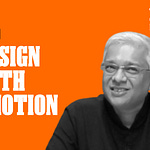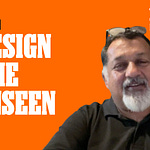Summary
In this episode, playwright Ramu Ramanathan delves into the layered world of theatre—discussing protagonists, subtext, and how plays reflect and influence society. He shares insights from Indian and Western traditions, the politics of storytelling, and the subtle power of performance to challenge authority, inspire change, and preserve memory.
Questions
Who or what is an antagonist or a protagonist—maybe on stage and then later in the real world?
Is there a reason to compartmentalize two things like protagonist and antagonist?
Do societies define heroes, or are art and literature simply reflections of society?
How good or bad is it that earlier people took something home from plays, but today they just see a reflection of home on stage?
How can a potential writer-director depict something real from society without literally showing it, and still give the audience something meaningful to take away?
Since India is a land where antagonists and protagonists are worshipped equally, what’s your process of defining them in your plays?
Was this subtext (e.g., in mythological plays) a conscious strategy by playwrights, or just coincidence?
Is there any parameter to gauge a character, whether antagonist or protagonist, to become a better audience member?
In cases like Ghashiram Kotwal, was it the director’s conscious skill or the audience’s awareness that brought out the subtext?
Do you think a playwright always has to think about subtext? Or is it something that just emerges naturally?
Can you share your own experience using something in a play (like a symbolic “gun in the first act”) that pays off later, as P.L. Deshpande once quoted?
People mentioned
Bhasa – Ancient Indian playwright, known for the play Urubhanga (Angum).
Kalidasa – Classical Sanskrit poet and dramatist, considered a literary icon.
Bharata Muni – Author of the Natyashastra, a foundational text on Indian dramaturgy.
William Shakespeare – English playwright whose works shaped Western dramatic canon.
Henrik Ibsen – Norwegian playwright, considered the father of modern drama.
Anton Chekhov – Russian playwright and short story writer, master of subtext.
Samuel Beckett – Irish avant-garde playwright known for Waiting for Godot.
Jotirao Phule – Social reformer who used theatre to mobilize working-class audiences.
Vijay Tendulkar – Playwright of Ghashiram Kotwal, known for bold political commentary.
Jabbar Patel – Director of Ghashiram Kotwal, blending folk theatre with political subtext.
Satish Alekar – Playwright and actor, part of the experimental Marathi theatre movement.
Girish Karnad – Indian playwright whose work often uses myth and history as allegory.
Peter Shaffer – British playwright known for Amadeus and psychological dramas.
Mahesh Dattani – Indian playwright, often explores psychological and social themes.
P. L. Deshpande – Beloved Marathi writer and performer; quoted about “gun in the first act.”
P. D. James – British crime novelist who explored social decay through detective fiction.
Reference links
https://www.mumbaitheatreguide.com/dramas/interviews/27-ramu-ramanathan-interview.asp#
https://www.teltrilogy.com/books/mumbai-murmurings-213-tiny-tales-of-theatre/
Join the new journey
YouTube Channel – Join 4K+ subscribers. 🎥
TGP SamaChar – A newsletter with 4 curated finds across episodes.
Instagram – Stay updated with episode updates and more
LinkedIn Page - A new dedicated page for TGP
WhatsApp Channel – One-way episode updates for now. With your support, it could soon become a vibrant community.
Recommend a guest - Have someone in mind who would be a great fit for The Gyaan Project?












